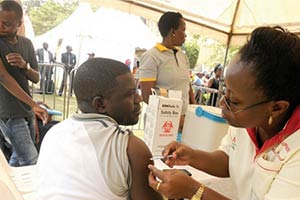Uganda is the first and only country in Africa to reach and break the World Health Organisation 2020 target of ensuring access, treatment and awareness creation of Hepatitis B, according to a new scorecard launched to track progress against the viral infection on the continent.
“More than 30 per cent of the population who are infected with Hepatitis B are now aware of their status and can have access to free medical care, making Uganda the first country in Africa to cross the 2020 target of 20 per cent,” notes the WHO scorecard.
WHO hopes that by 2020, some five million people will have received treatment for chronic Hepatitis B and that the number of new cases will come down to 30 per cent from those witnessed in 2015.
Uganda has spent some $3 million annually from 2015 on a free Hepatitis B screening programme and conducted a community mobilisation and sensitisation drive on the viral infection.
More than four million people have been screened to date.
“Only Rwanda (Hepatitis C) and Uganda (Hepatitis B) have started free nationwide screening as a decentralised service, and are on track to reach the 2020 target for screening and community awareness,” notes WHO.
Kenneth Kabagambe, founder of Uganda’s National Organisation for People Living with Hepatitis B in 2012, said, “Over the years, we’ve been working hard for more government support, and we’re proud that Uganda is one of the first African nations to fund domestic action against Hepatitis B.”
Uganda and Rwanda have made progress in this area.

